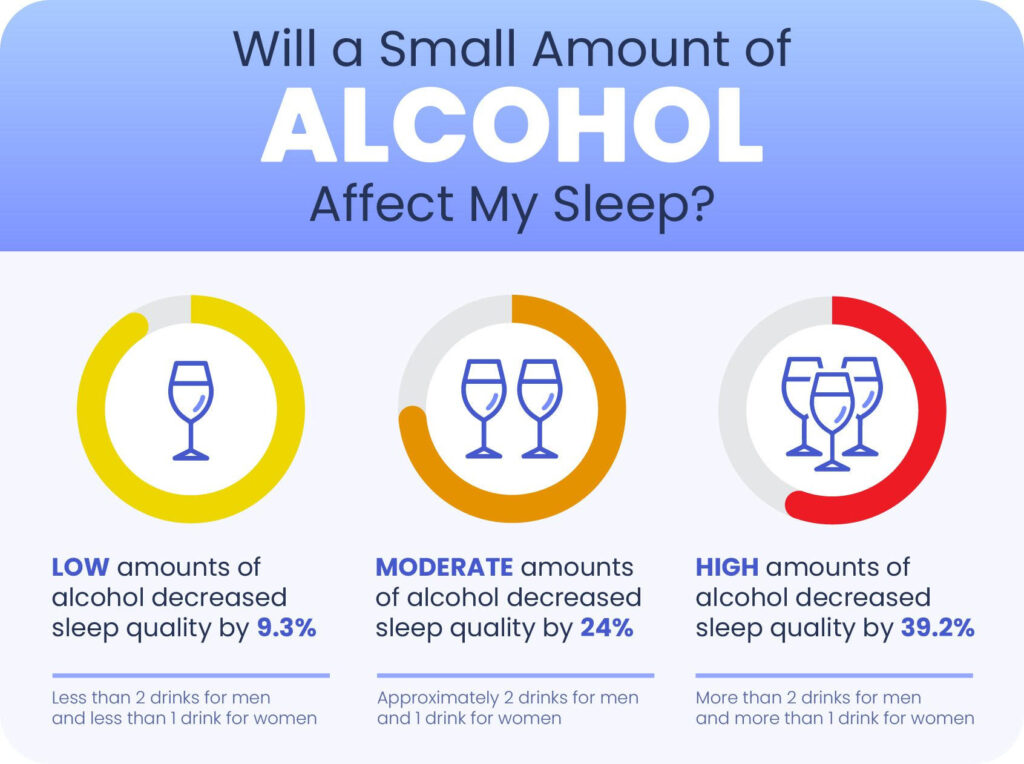By Tim Irvine
The title of this article is a bit of a trick question. Those who consume would like to think it relaxes us and sets us up for better sleep. The former may be true, but from an internal perspective, the latter is false. The graphic below from sleepfoundation.org shows clearly how alcohol can affect sleep quality.
In short, we sleep worse when we consume alcohol. Here’s why.
Issue number one is that alcohol is inflammatory. Inflammation will cause digestive issues and can lead to stomach pain and/or upset. Have you ever had a great sleep when your stomach is bugging you?
The second issue is this little thing called a diuretic. Alcohol promotes urination, and if you must get up a couple of times each night to pee, that takes away from getting deep, quality sleep. Plus, if you have enough, you become dehydrated and feel that fuzzy, hangover feeling.
Third, alcohol is fundamentally a bunch of easily digestible sugars, and we know sugar initially has stimulating effects. Since a lot of drinking happens in the evening, our sleep suffers.
Most importantly, however, it is the effect of alcohol on your heart’s efficiency. In an Outside Magazine article exploring the effect of alcohol on sleep, it is made clear that Heart Rate Variability (HRV) and resting heart rate (RHR) is negatively affected by alcohol. Both factors are measures of recovery and your readiness for activity. When we are in deep sleep, we see lots of important repair work. Alcohol reduces the amount of deep and REM sleep, negatively impacting your recovery. You may still be in bed for 7 hours, but it is highly likely that your quality of sleep will be reduced. And we know our physical and psychological capabilities decrease when sleep quality goes down. One important distinction that is made in the article is that each person has their own unique responses to alcohol. One person may have a dramatic drop in the quality of HRV due to one drink, and another will have hardly any impact. What is clear, however, is that alcohol will decrease quality for 100% of the population. Sleep trackers like Garmin’s Vivoactive 4, Whoop, or Oura Ring can help you determine how much you are impacted.
Does this make me want to give up drinking? No, of course not. What it does do is help me understand how it affects me so that I have better decision-making around alcohol when I need to be at my best, recover from illness or injury, or just have a restful sleep. Hopefully, this provides you with some of that decision-making power.

